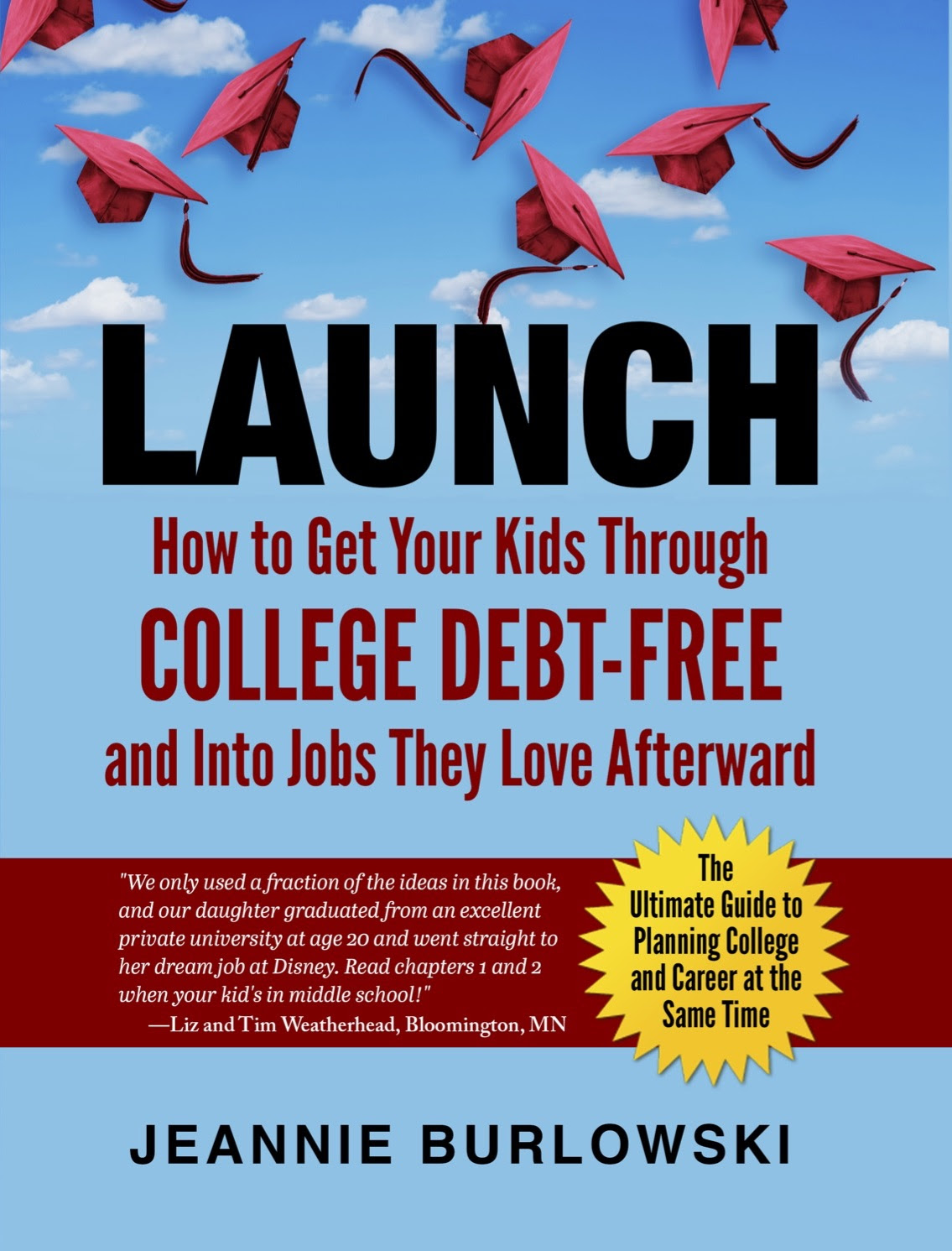“We need to see you right away,” the anxious mom told me on the phone, her voice shaking.

“Our son is $40,000 in debt from a history degree he’s not going to complete, and now he’s changing his major to music performance. At this rate, it’s going to take him seven years to finish a four-year degree, and he’ll be $80,000 in debt by the time he graduates. We’re worried he’ll never find a music performance job that’ll pay him enough to be able to make those huge student loan payments.”
“That is really worrisome,” I said. “I hope you didn’t cosign on any of those loans? If you did, your retirement could be at risk. Here’s my big question for you:
“Did your son get any career planning help before starting college?”
“Well, no—” the mom said hesitatingly. “We really wanted him to be happy, so we just told him to follow his passion. Isn’t that the best career advice?”
“No—it’s not. I’m sorry.” Read on to find out why “follow your passion” is terrible career advice.
In the work I do with high school and college students, I see “follow your passion” as one of the most destructive pieces of career advice that teens and 20-somethings hear. This bad advice is often at the core of why students run up $80,000 in student loan debt and then have no jobs to show for all that schooling afterward.
Am I against the “follow your passion” philosophy because I’m a Scrooge and a killjoy who doesn’t want kids to have jobs they love? Far from it. My goal is that every 20-something has work that provides them with the energized, joy-filled, passionate sensation that psychologists call “flow,” “passion,” or “absorption.” I want these students’ adult work lives to be characterized by the kind of joyous exhilaration where time seems to either fly or stand still. I want the young adults I’ve helped to be able to stand up after 10 hours of hard work and say: “That felt like 10 minutes! I feel so jazzed and energized right now that I could go climb a mountain!”
The way to attain this goal, psychologists agree, is for students to do three things:
1. Identify with precision exactly what they are naturally good at.
Don’t just guess on this—use the highest quality career assessment data to figure this out.
(Don’t rely on the little career assessment quizzes offered at the high school—those are notoriously inaccurate.)
I cover exactly which career assessments to take (and exactly where to find them) in Session 2 of my 3-session online course View From the Top of the Mountain: The 10 Biggest Ways to Get Kids Through College Debt-Free and Into Jobs They Love Afterward. (See parent testimonials about my TRIBE Membership and get on the waiting list for it here: bit.ly/burlowskitribe.)
Don’t rely on a quick skim of an internet article or two about this. You need a class on it.
See parent testimonials about my TRIBE Membership and get on the waiting list for it here: bit.ly/burlowskitribe.
2. Work hard to develop that raw talent until it becomes finely crafted skill.
3. Apply that finely crafted skill to specific situations with intense focus and concentration.
Once high-quality career assessments have led your kid to a job that’s fantastic for them, cultivate passion for it.
Here’s how.
Today I’m featuring a portion of an interview that Joshua Fields Millburn (TED.com speaker and co-author of the book Minimalism: Live a Meaningful Life) did with one of my personal heroes: author Cal Newport.
From the interview:
“Cal Newport, Ph.D., a 30-year-old assistant professor of computer science at Georgetown University, is interested in why some people lead successful, enjoyable, meaningful lives while so many others do not. Cal is not satisfied with simplistic slogans (e.g., “follow your passion!”). Instead, he dives deeper, looking to decode underlying patterns of success in all their nuanced glory. In celebration of his new book, So Good They Can’t Ignore You, I asked Cal the following questions.
QUESTIONS WITH CAL NEWPORT
JFM: The advice often regurgitated throughout the Internet is simply, “You should follow your passion.” Why does this sound so appealing? Why is this bad advice?
Cal: It’s appealing because it’s both simple and daring. It tells you that you have a calling, and if you can discover it and muster the courage to follow it, your working life will be fantastic. A big, bold move that changes everything: this is a powerful storyline.
The problem is that we don’t have much evidence that this is how passion works. “Follow your passion” assumes: a) you have preexisting passion, and b) if you match this passion to your job, then you’ll enjoy that job.
When I studied the issue, it was more complex. Most people don’t have preexisting passions. And research on workplace satisfaction tells that people like their jobs for more nuanced reasons than simply they match some innate interests.
JFM: You advocate cultivating your passion, instead of following your passion. What are the key differences?
“Follow” implies that you discover the passion in advance then go match it to a job. At which point, you’re done.
“Cultivate” implies that you work toward building passion for your job. This is a longer process but it’s way more likely to pay dividends. It requires you to approach your work like a craftsman. Honing your ability, and then leveraging your value, once good, to shape your working life toward the type of lifestyle that resonates with you.
In your research, what were some of the most common misconceptions you discovered about following your passion?
The biggest issue I run into is semantic. When I say, “don’t follow your passion,” some people get upset because they think I am saying, “don’t follow the goal of being passionate about your work.” But I’m not saying this. Passion is great. I just don’t see a lot of evidence that passion is something existing naturally, waiting to be discovered. It takes hard work and planning to develop.”
Cal Newport is a computer scientist and MIT graduate. His book, So Good They Can’t Ignore You, debunks the belief that “follow your passion” is good advice. Joshua Fields Millburn & Ryan Nicodemus write about “living a meaningful life with less stuff” for 4 million readers. They’ve been featured on ABC, CBS, NBC, BBC, TODAY, NPR, TIME, Forbes, The Atlantic, New York Times, Wall Street Journal, USA Today, and National Post.
I, Jeannie, have been an academic strategist for 25 years. Here’s the #1 most important first step to getting to a job you’re passionate about:
It’s #1 in my list above Cal Newport’s interview. Go back and re-read that now.
Help us spread the word about this!
It’s our goal to help as many families as possible. Copy this entire article and paste it right into your school, business, or homeschool newsletter. Put a link to it in your Facebook group! Just include the words “By Jeannie Burlowski.”
I’m Jeannie Burlowski, the author of:
Important—> It’s a reference book, so nobody reads the whole thing cover to cover. Pick out what you need to read in it using the fast-paced, 10-minute video instructions here.
You can see hundreds of reviews of this book on Amazon by going to:
Read just one chapter of LAUNCH every 1–3 months while your child’s in middle school and high school, and you’ll know every viable strategy for debt-free college at exactly the right time to implement it.
And if your child’s already well past middle school? That’s OK; you can run to catch up. But the process of getting your kids through college debt-free goes more smoothly the earlier you start—especially if you’re not planning to save up any money to pay for college.
Let's you and I walk together toward the goal of debt-free college for your kids.
We can accomplish this no matter your current income level—even if your kids never get a single scholarship.
Your first step is getting regularly scheduled, free helpful articles from me—right in your email inbox. Quick, sign up here.
Do you have very specific questions for me about debt-free college and career for your kids?
My TRIBE Members get the most direct access to me—while feeling good that the pennies per day they spend on the TRIBE help me bring debt-free college strategy to families who could never afford to pay for it. Join my TRIBE Membership waiting list here. (The parent testimonials you'll see there are so encouraging!)
Who is Jeannie Burlowski?
Jeannie is a full-time academic strategist, podcast host, and sought-after speaker for students ages 12–26, their parents, and the professionals who serve them. Her writing, speaking, and podcasting help parents set their kids up to graduate college debt-free, ready to jump directly into careers they excel at and love. Her work has been featured in publications such as The Huffington Post, USA Today, Parents Magazine, and US News & World Report, as well as on CBS News.
Jeannie also helps students apply to law, medical, business, and grad school at her website GetIntoMedSchool.com. You can follow her on Bluesky @jburlowski.bsky.social.
No part of this article was written using AI.
This article was updated on December 9th, 2024.


